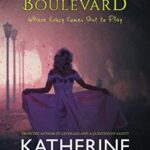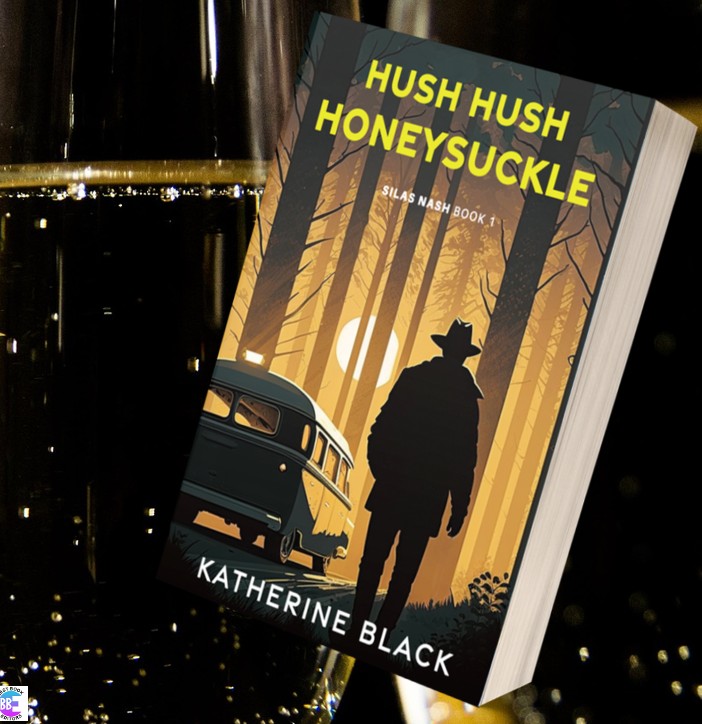As a new writer, there are many pitfalls and traps that we all fall into. These are standard, and almost every first-time author will trip themselves up sometimes. Writing is a craft that has to be learned and honed, much as any other skilled trade. It takes years of perseverance to learn and understand the techniques and methods of successful manuscript writing. Here, we will highlight some of the most common bad habits and mistakes that authors fall into, and how to avoid them. As an editor with over 30 years’ experience, I have seen each of these blunders a thousand times. New authors tend to be prone to overwriting and being verbose and wordy when sometimes a more relaxed and conversational style makes for a much more comfortable experience for the reader.
Overwriting
If your first draft is littered with empty words that add nothing to the story, that’s a good thing. The purpose of the first draft is to get your words out—any words in any order. It doesn’t matter if they are correct, or even if they make sense. What you want is to turn a blank document into a book-length effort of words. Don’t try and edit as you go along, you’ll get bogged down. It’s all about flow, getting in the zone and letting the captive words escape.
The first draft is sometimes called a rough draft for a reason—it’s meant to be rough. This is not the time to be cutting anything. It doesn’t matter if you’re not happy with it, because nobody is ever going to read it. It’s just a skeleton to build on. Create folders for early drafts and never delete them, they are always there for reference, and you may need to refer back to them later.
The editing process only comes into play in the next phase and you’ll find inconsistencies and plot holes that you missed in your rushed first draft. You will find that your writing is repetitive. Now is the time to start cutting the deadwood and tumbleweed. Use active verbs rather than passive verbs and run-on sentences.
Flimsy Characterization
You don’t have to be Stephen King to craft an authentic character. You can pick a dozen of them up just walking down the street. A character can form and develop in your mind before you start writing, or you can steal a nuance from somebody sitting in a café. The way they pick up their cup, the newspaper they are reading, a wistful look on their face that leads you to wonder what’s going on in their lives. From that, you can flesh out the ideas. Why are they sitting alone? Who has let them down, and what secrets are they hiding? By the time you’ve finished your toasted teacake, you’ve got a complete novel in your head. You don’t have to throw everything at your book in the first paragraph. The reader should feel the same emotion and sense the same motivation from a character that you do. Use strong sensory details, and pull your characters together with interesting physical descriptors and actions. Most of all, know your people. It may never come up in the story, but if asked you should be able to tell somebody your character’s favourite food, their hobbies, and the name of the first album they ever bought. As the book develops, so do your people. It takes on average two years to get from blank Word doc to Publication. Your characters live with you. If you have done your job properly, you should feel a sense of loss when the book is finished. If you don’t feel something, then your people aren’t strong enough and your reader will not engage with weak characters.
Jumbled and Incoherent Plot
People read for entertainment and escapism. Sometimes, there’s an art to making a complex plot simple. You can have ten sub-plots, five red-herrings and multiple hooks, of course, you can, but remember it’s very easy to write yourself into a corner. Make sure it is readable and keep in mind that the reader isn’t inside your head. You know where you’re going, but they don’t and have to be shown. For me, this is the joy of writing.
Method 1: Some people plot and chart their novels in advance and have an overview of what is going to happen in each chapter before they even begin. This is an excellent way to write and it works for many authors. As well as being the best method for a methodical mind, it’s a useful tool for inexperienced authors so that they don’t have their stories taking them for a ride and running off at a tangent.
To be clear, this is a good method of working. I would advise it for anybody writing their first half dozen books.
Method 2: However, I have a disorderly and chaotic mind and I have always used the other style of working. I write a word, let it grow into a sentence and carry on writing until the book is finished. This works for the other half of the writing community and there is no ‘write’ or wrong way to go about producing your novel. I love the times when I’ve written myself into a mess. They’ve done this, but to get out of it they have to do that. However, if they do that, the other doesn’t work. Now what?
Regardless of whether you chart in advance or freestyle, you must ensure that all ends have been tied, all sub-plots have reached a conclusion, and nothing is left up in the air.
 Use of Dialogue
Use of Dialogue
Your book should always have a balance of dialogue and narration. No matter which genre you have written in, there needs to be a descriptive narrative and flowing conversation. An imbalance to either side will leave your book feeling stilted. Find your own balance between action and dialogue, every book will be different. The greatest bad habit authors fall into concerning dialogue is something that I call stage management. At the beginning, in the middle and tagged onto the end, inexperienced authors feel that they should intrude and interfere with the conversation to add something inane, ‘talking, talking,” John cocked an eyebrow. What does John’s eyebrow have to do with your story? Does he have an eyebrow affliction that makes it relevant? The phrase I use to help this stick in an author’s mind is Let the talking do the talking. Imagine an annoying child tugging on your leg every time you open your mouth to speak to somebody. This is what stage management does to your dialogue.
Lack of Focus
We have our story. It is either plotted and charted (use a good index card program for your chapter charting) or it’s in our heads and good-to-go. We might flounder with that tricky first sentence, it has to grab the reader. We get caught up in that for a few minutes—but then we’re off. What do writer’s need above all else? Writers need discipline. If all the incomplete novels were thrown into the sea, we could probably use them as stepping stones and walk from England to America. Writers tend to start well. But at some point, you are probably going to lose momentum. The worst point for me is when the end is in sight, but still so far away. The last thirty thousand words or so are a killer. You have to keep focus. If you have written a full novel, stop what you are doing and pat yourself on the back. We have more authors in the world than ever before, but I bet you are still the only person you know in real life that has written a book. It’s not something that most people even think they can do. Get focus. Maintain focus Keep focus. Set yourself a low daily word count and stick to it. I have been writing for a long time and when I’m writing, I set my target at 1000 words a day. I average 8,000 and once wrote 16,000 words in one twenty-four hour period. On a good day, it takes me fifteen minutes to hit my target, on a bad one or on a day with a lot of research, it can take all day. Permit yourself to stop when you reach your target. Nine times out of ten, you won’t want to. Make your target manageable and never outface yourself with it. If you feel you can only commit to 100 words a day, then that’s the right place for you to be.
Choppy Pacing
There is no such thing as the perfect sentence in the perfect sentence structure. In today’s market there is a tendency for authors to give an overly polished ending or a taut and thrilling suspense line, but forget to allow their narrative to catch up. If the pace is choppy, the fault lies with not thinking about your work. Overdoing storylines can lead to a lack of readability, detracting from the success of the story and will lose potential readers. Words have power. Every word and phrase must be chosen with care—and add to the story.
Waffle, Tumbleweed, Deadwood, White-Noise
We have already touched on this talking about the first draft. The four words above are great in a rough copy. But we’ve written our book and we’re onto the second draft, and third and tenth and fifteenth. Second draft can still be a draft to add-to—but it’s also the time to cut-from. Read your work aloud. Pay attention to every word in every sentence. Does it need to be there? Does it add anything to the story? Writers are apt to give a lot of unnecessary background information and backstory. An avalanche of unnecessary and empty padding is the single most thing that makes a story drag. To avoid it slowing the pace and drowning in self-indulgence, try to make the action immediate, less vague, and not drawn out by unnecessary and boring waffle. It’s not important that he walked down a long corridor and turned left. If turning left is crucial to the story, then keep it—otherwise get rid. He looked up, down, left, right, cockeyed, we don’t care. I’ve edited people taking three pages to get to a meeting. We have the door, a corridor, the lift/elevator, a choice of buttons, the door opening, a corridor, another door—just get to the damned meeting before you get sacked, man. From second draft cut, cut, cut—and then cut some more.
Too Many Adverbs
I have a golden rule. When you’ve used an adverb, read the sentence out loud. If the sentence is structured, complete and makes sense without the word ending in LY—get rid. Once every twenty times, the sentence needs an adverb to complete it. The rest of the time it is just white noise. Good writers do not use endless adverbs because it makes your work terribly, awfully, repetitively, slovenly badly written-ly.
Repetition
We all have our darlings. A favourite of mine was A decadent hot-chocolate with lashings of whipped cream and sprinkles. Because this was my idea of heaven, it had to be the same for all of my characters. Mix your writing up. We don’t always see repetition ourselves and it takes another pair of eyes to point our babies out to us—and sometimes we do have to throw our baby out with the bathwater. If you use the same descriptive phrase more than twice in a novel, it’s going to jump out at the reader and smack them around the head. Similarly, making the same tired old point on a loop is unnecessary. If your reader is too stupid to get something, there’s no point in hammering it home. It’s not your job to tell your reader the same thing ten times—no, not even if you jumble the words up a bit when you say it again. Make your point, move on, it’s done—next.
Too Much Tell—Not Enough Show
This is a common and easy mistake to make. Too much tell is the death of a story, and will make it hard for the reader to understand what’s going on—or for them to even care. Readers can sense when the writer is showing off by telling, instead of showing. Tell it like it is, and show it with action. Even if the reader doesn’t understand why something is happening, the writer should be able to show them. If it’s a sad, heart-wrenching or harrowing scene, it should be tough to read, but easy for the reader to empathise with. Never tell a reader how to feel, that’s up to them.
Conclusion
The trick is to use your judgement, practice, and make mistakes often. We need these mistakes to learn from them.
- Don’t waffle for the sake of saying nothing—make every sentence count.
- Don’t use stage management in dialogue, let the talking do the talking.
- Don’t overuse Adverbs.
- Don’t repeat yourself.
- Don’t repeat yourself!
- Do keep writing.
- Do enjoy it.
- Do make your book the best book that it can be.
Why do I need an editor?
Never trust your eyes—they will lie to you. Our brain does this clever trick, it sees what we think is there—not what is on the page. You can edit your work twenty times, and I can almost guarantee there will still be errors in your book. A developmental editor will improve your book. I am an editor by profession—I still have an editor for my work.
In ten years, re-read your first novel (you might want to pull it, give it an edit and re-publish) and be embarrassed by how bad the writing is—and then be proud about how far you’ve come.
Today a blank document—tomorrow a book.
Website
https://www.bestbookeditors.com/
https://www.bestbookeditors.com/latest-news/
https://www.bestbookeditors.com/books-by-katherine-black/
https://www.bestbookeditors.com/what-you-get-for-your-money/
https://www.bestbookeditors.com/book-formatting-and-typeset/
https://www.bestbookeditors.com/book-cover-design/
https://www.bestbookeditors.com/illustrations/
https://www.bestbookeditors.com/marketing-and-promotion/
https://www.bestbookeditors.com/author-publisher-logo-design/
https://www.bestbookeditors.com/book-trailers-promo-videos/
https://www.bestbookeditors.com/author-interviews/
https://www.bestbookeditors.com/shop/
https://www.bestbookeditors.com/request-a-quote/
Facebook page
https://www.facebook.com/Best-Book-Editors-102025145430197/
Facebook Group
https://www.facebook.com/groups/625104781821119/?notif_id=1635265103733738¬if_t=groups_member_joined&ref=notif












